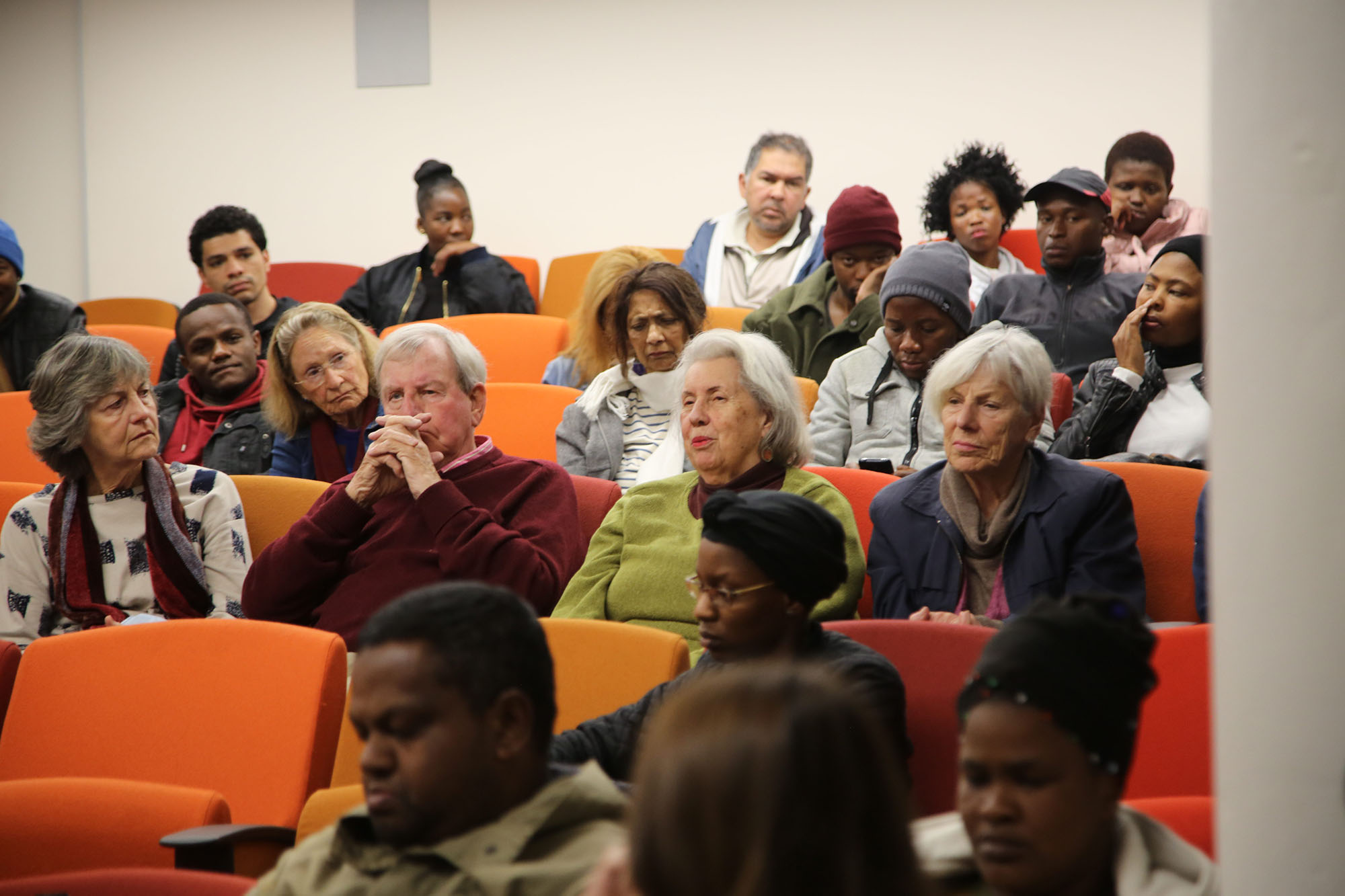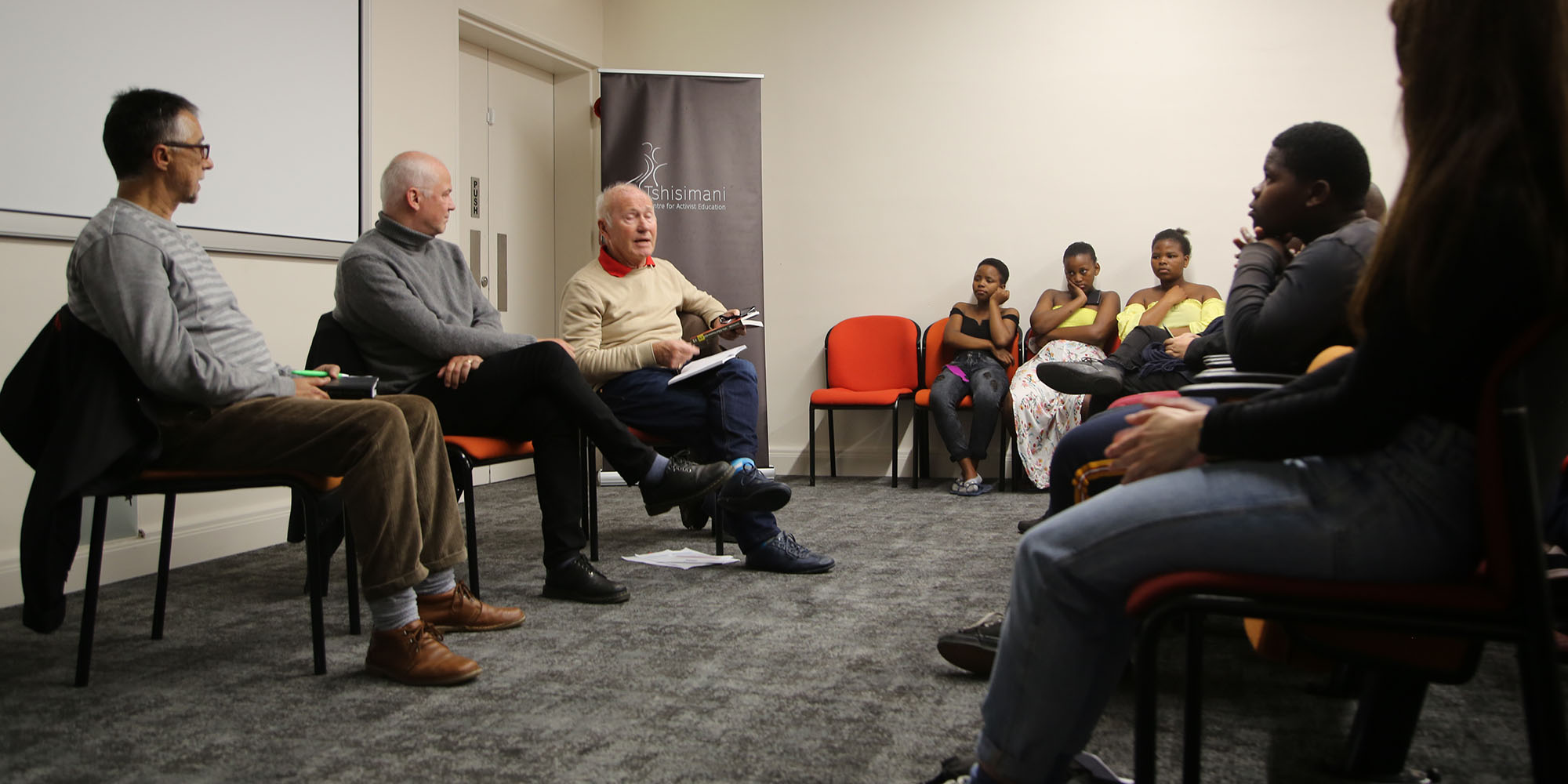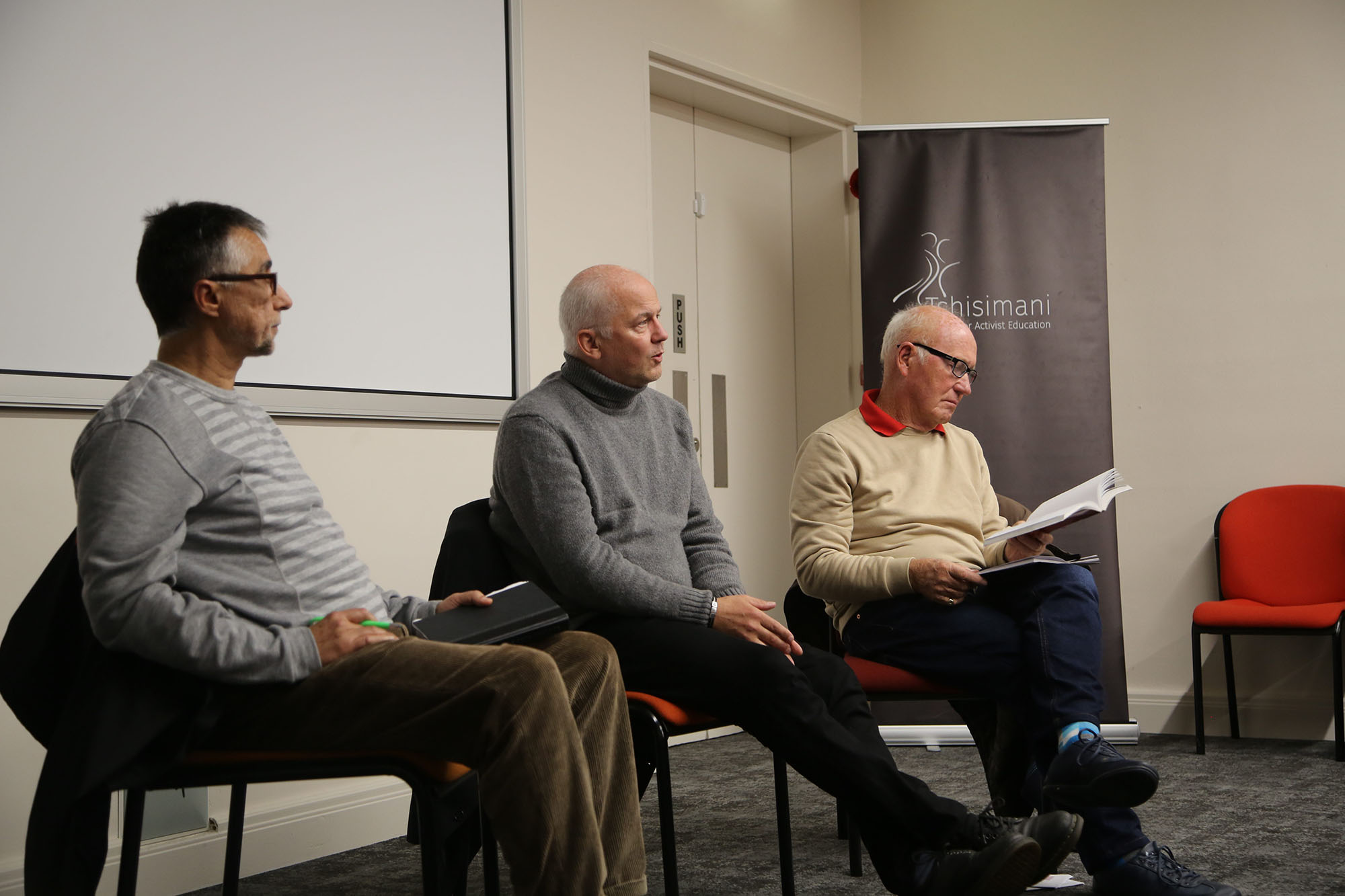Encounters Film Festival
Mistaken assumptions about a cold case of murder

Andreas Rocksén, the producer and head researcher of the documentary Cold Case Hammarskjöld, said he never intended for audiences to get swept up in conspiracy theories surrounding the origins of HIV/AIDS. The documentary was screened at the Tshisimani Centre for Activist Education in Cape Town on 8 June, where audience members were preoccupied with the theory that HIV/AIDS was man-made, a claim the film never made.
Cold Case Hammarskjöld, the Mads Brügger documentary about the assassination 58 years ago of United Nations Secretary-General Dag Hammarskjöld, was screened at the Tshisimani Centre for Activist Education on 8 June, as part of the Encounters International Documentary Film Festival.
The screening was followed by a panel discussion with the film’s producer and head of research, Andreas Rocksén, and Terry Crawford-Browne, an anti-war activist and lobbyist against the Arms Deal.
The documentary attempts to unravel the mysterious circumstances surrounding Hammarskjöld’s death in 1961. He died in a plane crash outside Ndola, a mining town in Zambia while flying into the Congo for peace negotiations with Moise Tshombe, the president of the secessionist state of Katanga.

The film Cold Case Hammarskjold was screened at the Tshisimani Centre for Activist Education in Mowbray Cape Town on 8 June as part of the Encounters Film Festival. The film delves into the assassination of United Nations Secretary-General Dag Hammarskjöld. Photo: Sandisiwe Shoba
The premise of the film is to find out what happened on the day Hammarskjold’s plane crashed. As Brugger and Göran Björkdahl, whose father had worked for the UN in Zambia, try to unpack the case, they discover the existence of a paramilitary organisation called the South African Institute for Maritime Research (SAIMR) that had allegedly detonated a bomb in the aircraft carrying Hammarskjöld and 15 others.
The institute, founded by Keith Maxwell, who is painted as a murderous, psychopathic white supremacist, was a “clandestine mercenary organisation for hire”.
Not much is known about Maxwell, who died in 2006 from a heart attack.
Claude Newbury, a medical doctor who knew Maxwell, thought that he was a lovely person.
In the film, Maxwell’s wife describes him as emotionally abusive and isn’t sure why he started SAIMR.

Andreas Rocksén, the producer and head researcher of the documentary Cold Case Hammarskjöld, said he never intended for audiences to get swept up in conspiracy theories surrounding the origins of HIV/AIDS. 8 June 2019. Photo: Sandisiwe Shoba
Alexander Jones, a former member of SAIMR, claims in the film that the organisation had a mandate to wipe out “anybody that resisted any white form of rule”, including Hammarskjöld, whose agenda was to protect African countries from the “tentacles of colonialism”.
“He was a threat,” Jones said on camera.
Jones fled South Africa before the film was released.
Apart from assassination missions, SAIMR allegedly tried other sinister means to advance its agenda. The film claims the organisation was involved in a plot to use HIV as a weapon of biological warfare.
The documentary claims that Maxwell, who posed as a medical doctor, set up clinics in townships in Johannesburg. Here, he conducted experiments on black people and administered vaccines contaminated with HIV.
With this, the film points to another assassination, the death of Dagmar Feil.
Feil was a biologist recruited by SAIMR. While stifling tears, her brother Karl Feil appears on camera and tells how she was murdered in front of her home in November 1990 after trying to alert the authorities about SAIMR’s vaccines. Karl found her body.
Karl Feil was present at the screening at Tshisimani. He told Daily Maverick that his sister’s death destroyed his parents.
“I think the hardest part is what it did to my mom. It killed her, absolutely killed her,” said Feil.
Their mother had repeatedly tried to bring Dagmar’s case and the tale of SAIMR to the Truth and Reconciliation Commission but failed. Karl believes this was a conspiracy.

The screening of Cold Case Hammarskjold on 8 June was followed by a panel discussion with the film’s producer and head of research Andreas Rocksén and Terry Crawford-Browne an anti-war activist and lobbyist against the Arms Deal. Photo: Sandisiwe Shoba
“The TRC had an open mandate to investigate anything they wanted,” he said.
“They didn’t have a fixed time-frame or a fixed scope in which they could investigate. There’s a reason that they didn’t investigate SAIMR. Someone told them that you’re not going to open up the investigation into the organisation.”
But the primary take-away by audience members at Tshisimani was that HIV/AIDS was a man-made disease, a claim that was not made in the film.
“So can you clarify if Aids was actually man-made or is it just a virus that appears in nature?” an audience member asked.
To which Rocksén responded that he does not believe that HIV is man-made but “studies exist that deal with the matter in a credible way”.
Rocksén, who has no medical background, said he regretted the response regarding the conspiracy theory, which has been widely discredited.
“I think that it is strange that the conclusion from the film is that Aids is man-made because that is not the point,” he told Daily Maverick.
“It’s fuelling an idea that is not meant to be fuelled. And that is not the thought that we want people to have after seeing the film, that this is an argument that AIDS has been man-made. I do not believe it, we do not believe it.”

The film Cold Case Hammarskjold was screened at the Tshisimani Centre for Activist Education in Mowbray Cape Town on 8 June. The film delves into the assassination of United Nations Secretary-General Dag Hammarskjöld. Photo: Sandisiwe Shoba
In a New York Times article on reaction to the film, Quest to Solve Assassination Mystery Revives an AIDS Conspiracy Theory, scientists cast doubt on the claim, which they called medically dubious.
“The probability that they were able to do this is close to zero,” Dr Salim S Abdool Karim, the director of Caprisa, an Aids research centre in South Africa, was quoted as saying.
According to the article, Aids experts said the film unnecessarily gave currency to conspiracy theories and warned that the claim could cause serious harm in South Africa, which has one of the world’s highest HIV infection rates.
Rocksén says they are reaching out to institutions in South Africa who can assist in presenting the film in a way that will minimise harm to local audiences. DM
The Encounters International Documentary Festival is running from 6 – 16 June in Cape Town and Johannesburg. It showcases 65 local and international titles. See the programme on their website



















 Become an Insider
Become an Insider